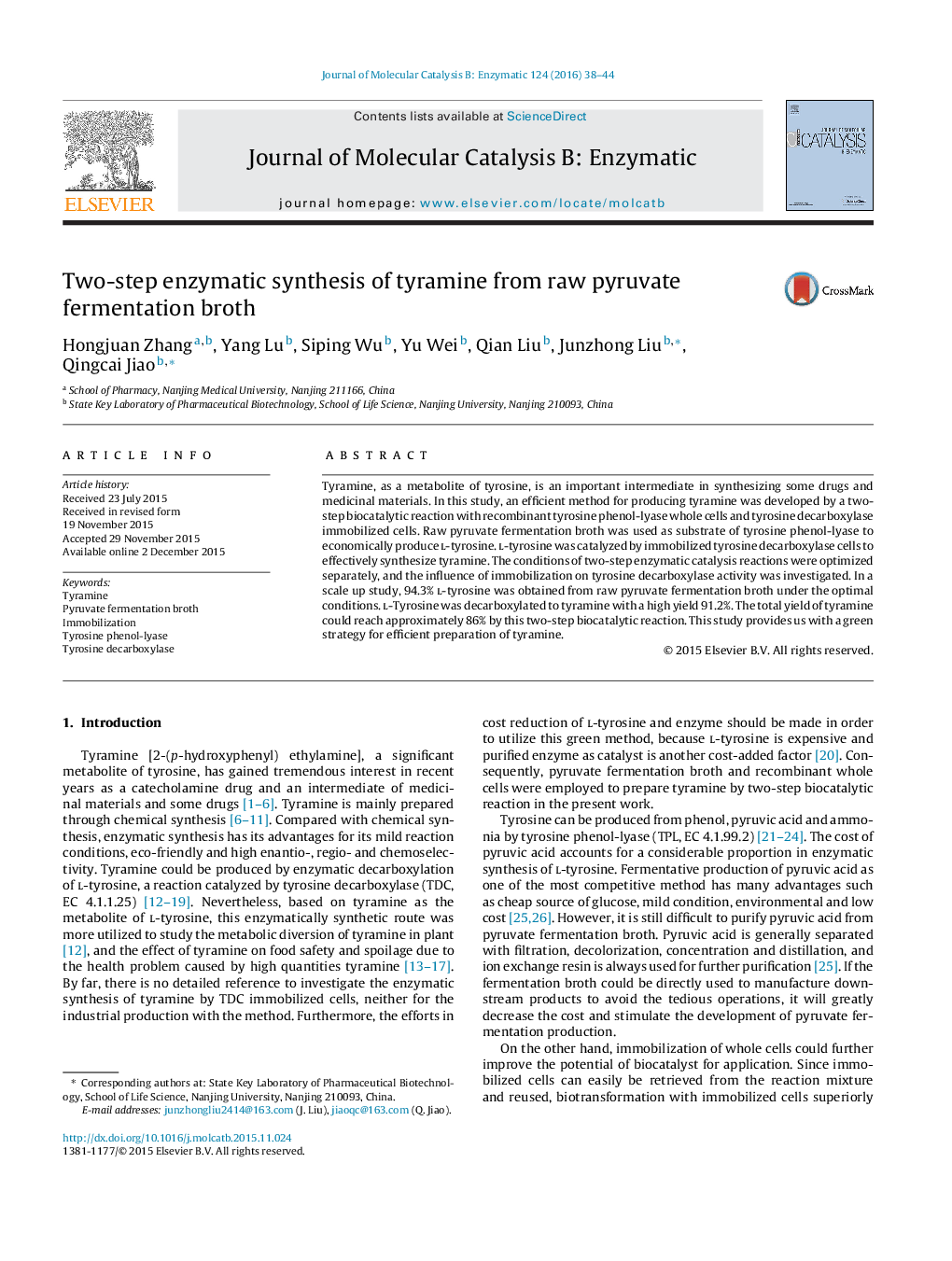| Article ID | Journal | Published Year | Pages | File Type |
|---|---|---|---|---|
| 69506 | Journal of Molecular Catalysis B: Enzymatic | 2016 | 7 Pages |
•Tyrosine was prepared from pyruvate fermentation broth by tyrosine phenol-lyase.•Tyrosine was efficiently decarboxylated by immobilized tyrosine decarboxylase cells.•Tyramine hydrochloride was obtained with 99.9% purity and a total 86% high yield.•It is a green and economic strategy for the two-step enzymatic synthesis of tyramine.
Tyramine, as a metabolite of tyrosine, is an important intermediate in synthesizing some drugs and medicinal materials. In this study, an efficient method for producing tyramine was developed by a two-step biocatalytic reaction with recombinant tyrosine phenol-lyase whole cells and tyrosine decarboxylase immobilized cells. Raw pyruvate fermentation broth was used as substrate of tyrosine phenol-lyase to economically produce l-tyrosine. l-tyrosine was catalyzed by immobilized tyrosine decarboxylase cells to effectively synthesize tyramine. The conditions of two-step enzymatic catalysis reactions were optimized separately, and the influence of immobilization on tyrosine decarboxylase activity was investigated. In a scale up study, 94.3% l-tyrosine was obtained from raw pyruvate fermentation broth under the optimal conditions. l-Tyrosine was decarboxylated to tyramine with a high yield 91.2%. The total yield of tyramine could reach approximately 86% by this two-step biocatalytic reaction. This study provides us with a green strategy for efficient preparation of tyramine.
Graphical abstractFigure optionsDownload full-size imageDownload as PowerPoint slide
